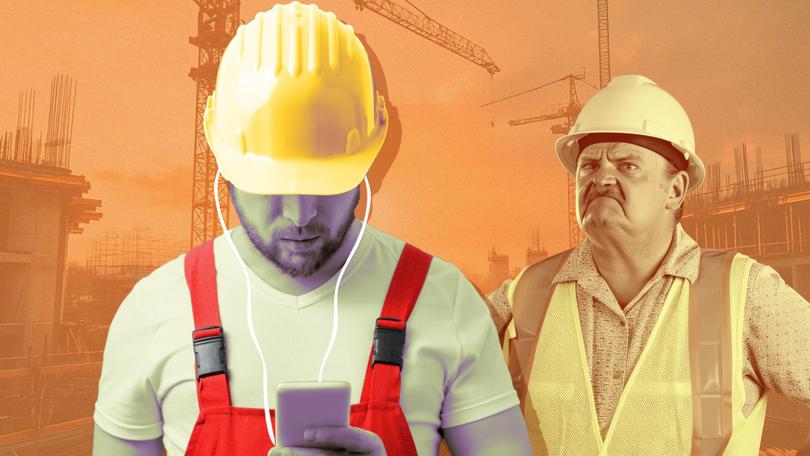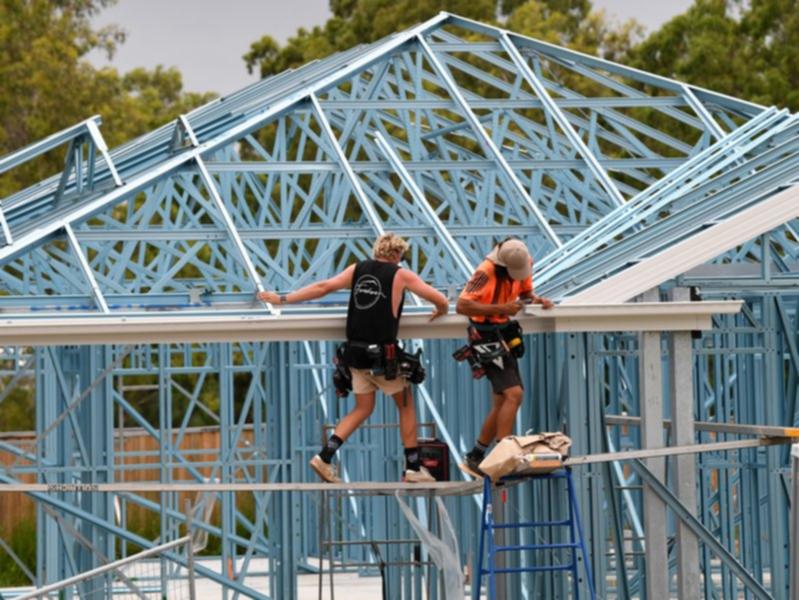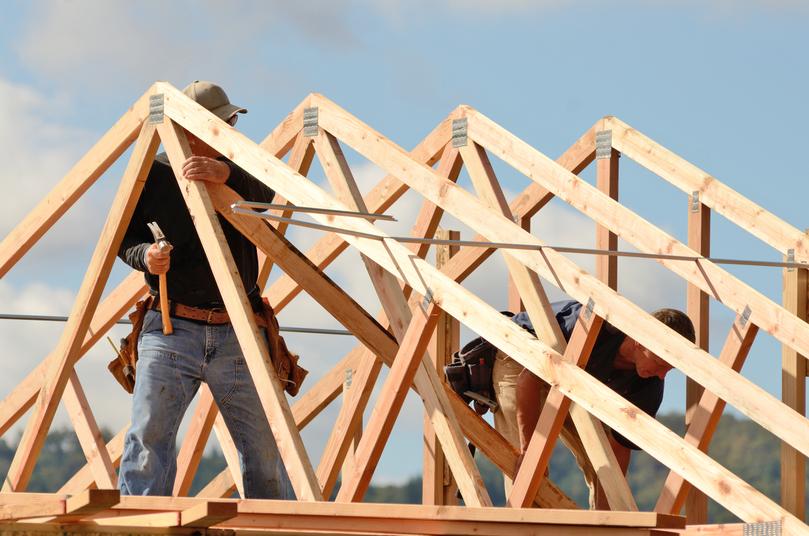AARON PATRICK: The housing crisis and the six-hour tradie work day
AARON PATRICK: When plumbers are paid more than GPs, it is not surprising that housing costs so much.

Builder Mark Newman recently convened an all-hands meeting at one of the four houses he is building on Sydney’s north shore.
From now on, Newman told his workers, do not wear headphones or earbuds on the job. “I’m sick of talking to people who can’t hear me,” he said. “I think it’s unsafe.”
The older tradesmen nodded in agreement. The younger crew was unhappy. Some said they only used one earbud at work so they could listen to instructions with the free ear.
Sign up to The Nightly's newsletters.
Get the first look at the digital newspaper, curated daily stories and breaking headlines delivered to your inbox.
By continuing you agree to our Terms and Privacy Policy.The disagreement over the right to listen to private music on construction sites helps explain one of Australia’s greatest economic failures: the spiralling cost of houses.
Over the past decade, the average construction time for houses rose from about 6.4 months to 10.4 months, according to an analysis published this week by the Productivity Commission, a government research agency.

Making society worse
Most other industries have become more efficient. Housing construction is getting worse, contributing to a home shortage that drives up prices and exacerbates social inequality.
“We have failed to build enough homes to meet the needs of a growing population, and it’s our children who are paying the price through increasingly unaffordable homes to own and rent,” Productivity Commission chairman Danielle Wood tells The Nightly.
Multiple problems are responsible, including complex rules and slow government approvals. Mr Newman’s biggest complaint is the construction-industry workforce, and a new sense of entitlement that has emerged among the trades class.
When Newman became a carpenter in 1996, the trade was led by European immigrants in their fifties. Although their written English skills were not strong, they were highly skilled. They worked 10-hour days.
“They were really good workers,” Mr Newman said. “They could teach too.”
The six-hour day
In the 2000s, after Mr Newman set up his own construction business, he noticed the culture changing.
After the old guard retired, nine-hour days became standard. Then concreters, bricklayers and other sub-contractors began to decide they would finish at 3pm and forgo mid-day breaks.
“They said, ‘We don’t have lunch’,” Mr Newman said. “That slowly turned into a 45-minute or one-hour break.
“Now they’re generally gone by 2.30. What used to be a nine-hour day is now a six-hour day.”
When Mr Newman asks his contractors why he is still charged for eight hours work, he is told: “If you don’t like it we won’t come back.”
Earning more than a doctor
The underlying cause is a labour shortage. Even though Australia has about 1.9 million tradesmen, on no state are there enough carpenters, bricklayers, electricians or plumbers, with the exception of carpenters in Victoria, according to Jobs and Skills Australia, a government agency.
Skilled tradesmen know they have bargaining power, and have been using it. In parts of Sydney, plumbers can charge $150 an hour, or $6000 a week, which is greater than many general practitioner doctors.

On building sites, the workforce is younger, and less motivated. Growing up in a more prosperous age, they lack the hunger of earlier generations of home-builders.
Training standards seem to have dropped too. Six years of teaching at TAFE colleges is now condensed into three, according to employers, which means they become qualified with fewer skills.
Aggressive unionism on large construction sites may have raised pay expectations in the house-building industry, which is dominated by individually owned businesses, like Mr Newman’s.
Gas leaks
The 46-year-old father of three recently found gas leaks in a house he built. The garden and lawn had been finished. The owner was three days away from moving in.
The plumbers, in their twenties, hadn’t tested one branch of the gas system, which had six leaks. The pipe ran under the new lawn, which had to be dug up.
Standing in his own partially build home, which has taken 18 months to finish, Newman pondered why houses that took a year or 60 weeks to build when he became a carpenter now take a year-and-a-half.
“You are scratching your head and wondering how can it be possible to take so long to get this done?” he said.

